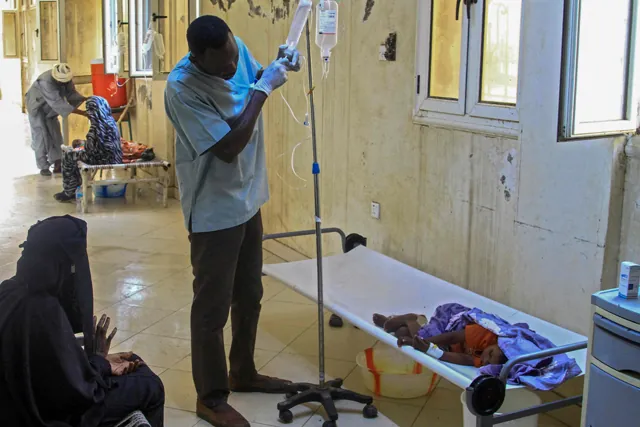
Breakthrough Model Reveals Age-Specific Responses to mRNA Vaccines: A Game-Changer for Vaccine Development!
2024-12-13
Author: Jia
Researchers at Boston Children’s Hospital have made a significant breakthrough in understanding how different age groups respond to mRNA vaccines, particularly in the context of the COVID-19 pandemic. A study led by Dr. Byron Brook, Dr. David Dowling, and Dr. Ofer Levy has developed a revolutionary model that allows for the evaluation of immune responses to vaccines outside of the human body, shedding light on why older adults exhibit a diminished immune response compared to their younger counterparts.
What You Need to Know: The New MEMPHIS Test System
Dubbed MEMPHIS (Modular Evaluation of immunogenicity using Multi-Platform Human In vitro Systems), this new model utilizes human blood samples across various age groups to pinpoint the immune responses elicited by mRNA vaccines like the Pfizer/BioNTech COVID-19 vaccine. By employing an array of sophisticated methods, including proteomics and systems biology approaches, the research team was able to measure the levels of cytokines—key immune signaling proteins—produced in response to the vaccines.
Dr. Levy, the head of the Precision Vaccines Program at Boston Children’s, expressed his excitement, stating, "For the first time, we can model age-specific responses to mRNA vaccines outside the body—this is groundbreaking for our understanding of vaccine activity in vulnerable populations."
Key Findings: A Stark Contrast Between Young and Older Adults
The study, published in iScience, revealed concerning insights: individuals over 60 years showed significantly muted innate immune responses compared to those aged 18 to 50. Older adults exhibited a weakened ability to support Th1 immunity, suggesting that their early inflammatory responses were less robust. Four critical cytokines (CXCL10, IL-1RA, IFN-gamma, and CCL4) were notably lower in older individuals, which are essential indicators for a strong immune response and effective T cell-mediated immunity.
This lower initial response could explain why older adults may experience quicker waning of immunity from mRNA vaccines, a pattern that researchers are also observing in mouse models.
A Shift in Vaccine Testing: Redefining Standards with Human Biology
The study highlights the limitations of traditional mouse studies, which can be costly and time-consuming, and may not accurately reflect human immune biology. Thankfully, the FDA Modernization Act 2.0, enacted in 2022, now endorses alternatives to animal testing, emphasizing the role of human cell and organoid models.
Dr. Levy points out that the MEMPHIS system exemplifies this new frontier in research, enabling simultaneous testing of multiple vaccine doses and adjuvants in samples from the same donor. The ultimate goal? To elicit a youthful immune response in older individuals, leading to longer-lasting protection from vaccines.
Next Steps: Targeted Vaccine Development for All Ages
In an ambitious move, the research team plans to extend their study to newborns, who present unique immune responses. They aim to identify blood biomarkers that could predict which mRNA vaccine would be most effective for specific age cohorts.
Dr. Levy emphasizes their mission: "We want to expedite vaccine development using human in vitro systems and facilitate the selection of optimal vaccines and adjuvants for different age groups. While vaccines are already safe and effective, our goal is to ensure everyone, from infants to the elderly, receives the best protection possible."
With this pioneering approach, the future of vaccine development looks promising as we strive for tailored strategies that cater to the diverse immune needs across the lifespan.
Stay tuned as this groundbreaking research evolves—your next recommended vaccine could be just a study away!


 Brasil (PT)
Brasil (PT)
 Canada (EN)
Canada (EN)
 Chile (ES)
Chile (ES)
 España (ES)
España (ES)
 France (FR)
France (FR)
 Hong Kong (EN)
Hong Kong (EN)
 Italia (IT)
Italia (IT)
 日本 (JA)
日本 (JA)
 Magyarország (HU)
Magyarország (HU)
 Norge (NO)
Norge (NO)
 Polska (PL)
Polska (PL)
 Schweiz (DE)
Schweiz (DE)
 Singapore (EN)
Singapore (EN)
 Sverige (SV)
Sverige (SV)
 Suomi (FI)
Suomi (FI)
 Türkiye (TR)
Türkiye (TR)